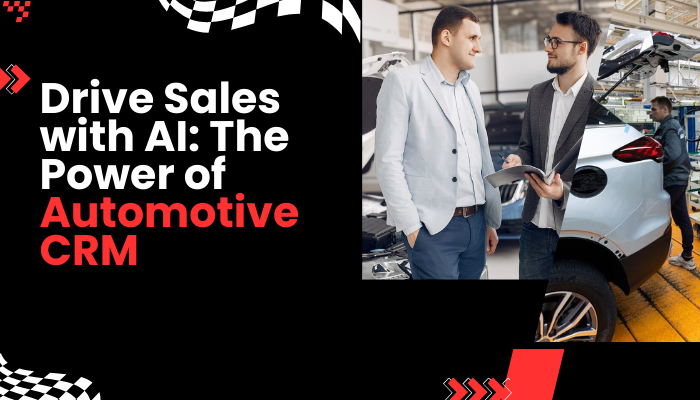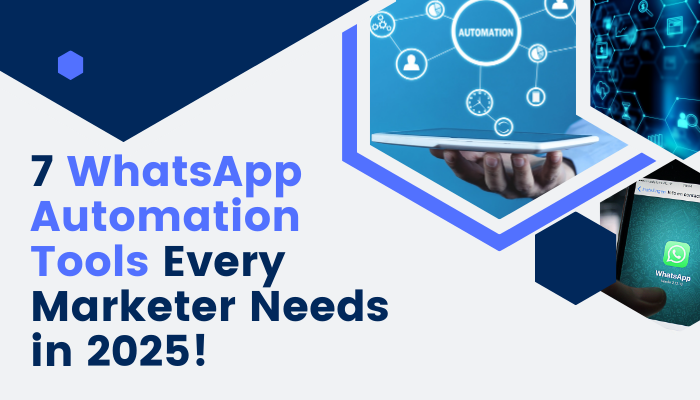How Artificial Intelligence is Transforming Automotive CRM Software
- Feb 19, 2025
- 4 min read
Updated: Mar 7, 2025

The auto enterprise is experiencing a digital revolution powered with the aid of fast traits in synthetic intelligence (AI). AI-based totally Customer Relationship Management (CRM) technology are reworking car agencies' engagements with customers, lead control, and the overall patron experience.
The want for classy CRM systems is growing, pushed via the enlargement of the enterprise. In June 2023, the UK passenger car sales rose with the aid of 25.8%, from 140,958 units in 2022 to 177,266 units in 2023. The fast boom shows the necessity for car agencies to put in force AI-based totally CRM structures to manage purchaser interactions effectively and extend operations.
This article discusses how AI is revolutionizing automobile CRM software, its foremost functions, developments within the future, and the way businesses can pick a really perfect CRM gadget for achievement in the long run.
Understanding CRM within the Automotive Sector
Automotive CRM software is a critical software program for automobile agencies, particularly dealerships that technique severa purchaser interactions on a daily basis. Dealership CRM software program assists in lead management, sales, and after-income services similar to enhancing patron interaction.
In the past, vehicle organizations used spreadsheets or simple databases to manipulate client interactions. Today's auto CRM systems consolidate customer information, automate processes, and provide real-time intelligence, enabling dealerships to streamline processes.
Advantages of Dealership CRM Software
A crm for automotive industry helps automotive businesses streamline lead management, enhance customer retention, and automate sales processes. It also improves after-sales service, reduces manual workload, and boosts customer satisfaction through AI-driven insights and automation.
Lead Management – Captures and follows up on leads from various sources such as websites, social media, and phone calls.
Customer Retention – Automatically sends follow-ups and reminders for test drives, service, and renewals.
Sales Pipeline Management – Automates tracking of sales and facilitates hassle-free communication with customers.
After-Sales Service – Tracks service appointments, guarantees, and maintenance reminders.
Automated Workflow Management – Eliminates paperwork by automating scheduling, follow-ups, and paperwork.
Customer Feedback & Reputation Management – Facilitates feedback collection and online review management efficiently.

Features of the Best Automotive CRM Software
Selecting an appropriate automobile CRM software is based totally on the capabilities that it helps. The best solutions offer stop-to-give up tools that deal with the particular needs of car agencies.
The Most Important Features to Consider:
AI-Driven Lead Scoring – Applies gadget getting to know algorithms to rank excellent leads, so income groups concentrate on the most promising leads.
Automated Follow-Ups – Sends targeted emails, textual content messages, and reminders to customers in keeping with their interest with the dealership.
Omnichannel Communication – Seamlessly integrates with multiple structures (WhatsApp, SMS, social media, e-mail, and contact) for client communique.
Predictive Analytics – Examines historic purchaser conduct to predict destiny tendencies and recommend targeted advertising campaigns.
Inventory Management – Monitors available motors, pricing, and predicted stock updates in real time.
Customer Insights & Reporting – Offers dashboards and analytics to track sales performance, customer engagement, and marketing effectiveness.
Integration with Other Tools – Integrates with ERP systems, digital marketing tools, and accounting software for seamless business operations.
Future Trends in CRM for Automotive Industry
Artificial Intelligence is playing a significant role in defining the future of automotive CRM. Companies are shifting towards more advanced, automated, and smart solutions.
Emerging Trends in Automotive Dealer CRM Software:
AI Chatbots – AI chatbots are getting used an increasing number of via dealerships to manage questions, book check drives, and provide after-sales aid.
Voice Recognition & Virtual Assistants – Voice commands are supported by some CRMs today, which helps sales representatives update records and gain customer access without using their hands.
Personalized Marketing Automation – AI-powered CRMs study the customer's preferences and send them tailored offers, financing options, and upgrade suggestions.
IoT and Connected Cars – CRMs are being integrated with IoT-connected cars, enabling dealerships to get real-time vehicle performance data and provide proactive servicing alerts.
Blockchain for Secure Transactions – Certain automotive dealer CRM software vendors are looking at blockchain to increase security in customer transactions, financing, and ownership tracking.

Selecting the Correct CRM for the Automotive Sector
Choosing a CRM for automotive should involve close consideration of business needs, scalability, and AI features. The correct CRM can help automate processes, enhance customer interaction, and increase overall effectiveness.
1. Business Needs & Customization
Determine the particular needs of the dealership—lead management, sales follow-up, or customer retention. A CRM with customizable workflows and customized features will better meet business goals.
2. AI & Automation Features
Seek a CRM that consists of AI-driven insights for client segmentation, automated comply with-ups, and predictive income forecasting. AI-powered automation can enable dealerships to paintings extra intelligently, minimizing workload.
3. Integration with Other Tools
Check that the CRM is well-integrated with marketing automation tools, accounting software, and ERP systems. An integrally connected CRM establishes an integrated platform, improving data flow between departments.
4. User-Friendly Interface & Mobile Access
Sales reps need to be able to get right of entry to CRM facts anywhere on a mobile-friendly platform. Intuitive dashboards, actual-time signals, and easy navigation decorate person adoption and productiveness.
5. Scalability & Cloud-Based Solutions
Cloud-based CRM facilitates remote access, data security, and scalability with ease as the business expands. Investing in an expandable solution avoids repeated system upgrades and potential future operational issues.
Conclusion
Artificial intelligence-based car dealership CRM software is transforming the way manufacturers and dealerships deal with customer relationships. From predictive analytics to automated chatbots based on AI and automation, CRM solutions are empowering companies to drive customer engagement, boost sales, and streamline after-sales services.
With the automotive market still growing, embracing an AI-based CRM is not a choice but a requirement. Dealerships that invest in sophisticated, AI-based CRM tools will remain in front of the competition and be able to provide an enhanced customer experience.





Comments